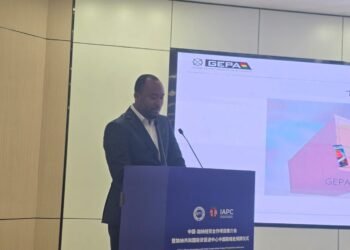Chief Executive Officer of Ghana Investment Promotion Center (GIPC), Yofi Grant, has disclosed that a strategic model has been drafted to ensure investors, both foreign and local, realize the impact of taxes on economic growth. According to him, tax exemption is an integral component of the economy and as such must be rooted in the law.
Speaking at the GIPC CEOs breakfast meeting, he noted that, although investors are always on the lookout for investment, a conducive environment for growth should be their focus.
“At the end of the day, clearly, any tax exemption and rebate must be planted in law. If there’s no law that enables that then it means that you have to find another structure to make sure it works. We do recognize that most investors want some sort of incentives; but global literature will tell you that it’s not incentives that brings investors to the market. Most of the times, incentives work when you’re looking at efficiency [and] seeking foreign direct investments where they compare one location to another in producing high technical stuff.
“For the general market-seeking and resource-seeking investor, incentives are not that important. What is important is the opportunity and the ability to grow their business. So, we need to take a step back and make sure that we can use whatever incentives we believe we should give very wisely”.
Investor reforms
Mr. Grant further disclosed that his outfit has suggested some reforms to transition the strategic investor to another tier called the responsible sustainable investor.
According to him, this suggests that incentives should only be applicable to direct foreign investors and those who partner local businesses.
“You have mentioned a key point. The fact that our tax revenue to GDP is only 12.5%; shows that we are not reaching the broader concerns of tax. I hear a lot of people say that we are being over-taxed. But when you have a tax rate of 12.5 to GDP; whiles our peers are somewhere looking at 20% and above then you know that you are not collecting the taxes that you can”.
Tax exemption and digitalization
Touching on digitalization and how best businesses can leverage on that, he revealed that most businesses evade taxes because they are outside the tax net.
Additionally, Mr. Grant further explained that these businesses must fulfil their quota by paying their tax obligation. He further concerted to the fact that a digitized collection system will make it easier for these businesses to pay their taxes.
“We have somebody who employs… and he pays them with cash and they are not taxed. So, they are outside of the tax net. There are a lot of people too whose businesses are informal and they’re very mobile. So, they’re outside the tax net. Digitalization and registration of everybody biometrically and digitally will mean that we know who you are and know how you can contribute to the development of your country by making sure you pay the appropriate tax. It’s important.
“I think that even as we ask government to be responsible do we also as citizens need to be responsible and pay our taxes? In some countries, the law is harsh on people who don’t pay taxes; but taxes are the only way government gets money. The rest of it is all private sector. Private sector businesses generate the income that government taxes and those taxes are then used by for development purposes”.
Read Also: Banks to reverse balance sheet restructuring as the real sector recovers- Attah Yeboah Gyan























